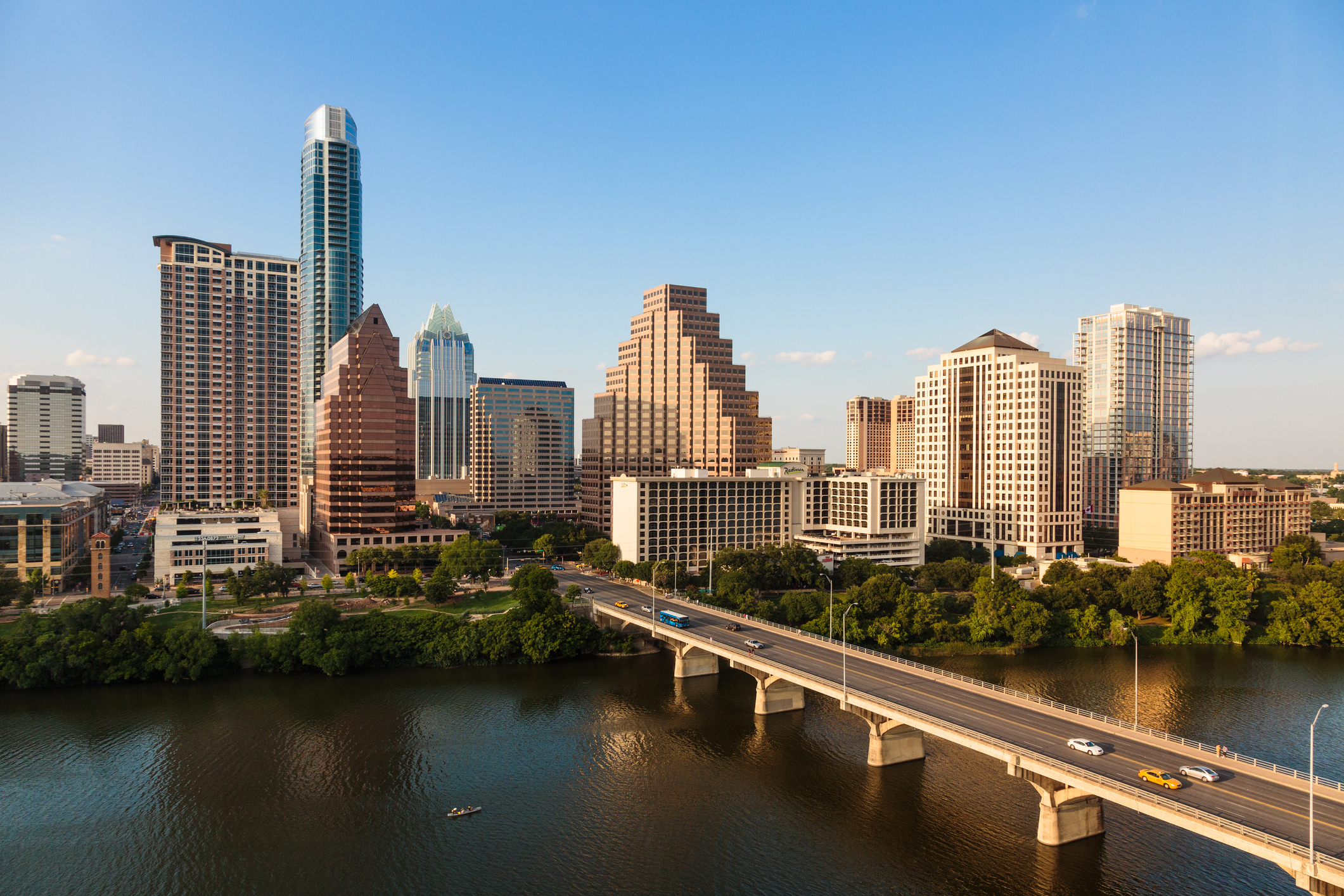Like countless cities across the country and around the world, Austin rallied to host weeks of marches protesting police brutality in the summer of 2020. Easily the most impressive show of support for the Black Lives Matter movement, the demonstrations shined a light on much-needed criminal justice reform and long-overlooked racial inequities — spurring local leaders to take the unprecedented step of reallocating more than $100 million from the police department’s budget. It was a galvanizing moment for Chas Moore, the founder and executive director of the Austin Justice Coalition, whose advocacy proved critical to the transformational decision.
“We’re not changing our strategy to reimagining public safety. We’re just expanding it,” Moore said last fall, alluding to future gains to come on the horizon. “Whether it’s holding APD [the Austin Police Department] accountable or addressing the gentrification decimating our communities, it’s clear we’ve got a lot of work to do.”
A lot’s changed since then, though. Enraged by the capital city’s move to direct millions in police funding to services for things like mental health and substance abuse, Texas Republicans made law enforcement a top priority in their Austin-bashing-filled agenda during the spring 2021 legislation session. Led by Gov. Greg Abbott, the GOP rammed through a handful of “Back the Blue” bills to punish any city that reduces its law enforcement budget. Austin’s efforts to apply its public safety dollars into, well, other aspects of public safety, were stopped in their tracks. Consequently, the city’s leaders took a hard left turn this August by directing more than $440 million to policing, an all-time record for APD funding.
And yet, Austin’s police budget remains at the forefront of its politics thanks to Proposition A. Created by Save Austin Now — the alarmist organization fronted by Travis County GOP Chairman/wannabe Trump sycophant Matt Mackowiak — Prop A is a municipal ballot initiative that would dramatically bolster an already-massive law enforcement funding (see above). The reason for this is simple, Mackowiak’s group argues: The capital city is enveloped in a public safety nightmare that only cops can solve.
The only problem? That’s not true. Despite Save Austin Now’s lie-riddled messaging, which paints the portrait of a city under siege and without an officer in sight, the town isn’t overrun by criminal activity. Yes, Austin has seen an undeniable uptick in violent crime over the past year-plus, but it’s not as extreme as Save Austin Now’s doomsday messaging suggests, nor is it the result of a lack of police funding (again, see above). It’s not a unique problem, either, with experts pointing out that pandemic-fueled unrest has led to an increase in crime across the country. “It’s fair to say that violent crime has increased in Austin — and everywhere else,” Texas State criminologist Sean Roche told the Austin American-Statesman back in July.
Of course, Save Austin Now has never cared much for facts or truth. Similarly to its successful anti-camping campaign last spring, which scapegoated, vilified, and dehumanized people experiencing homelessness, the tribalist collective’s strategy for Prop A relies almost entirely on disinformation and fear-mongering. Like Gov. Greg Abbott, Mackowiak regularly shares unverified information on Twitter to further his political agenda. His right-hand partner, Save Austin Now co-founder Cleo Petricek, frequently attacks local journalists who push back against the organization’s propaganda. “End the Crime Spree” is one of the group’s favorite slogans, which echoes statewide Republican leaders like Lt. Gov. Dan Patrick, who said the city was “one of the most dangerous cities in America and definitely in Texas” last year. The list goes on.
The implications of these efforts far transcend the actions of a few extreme actors, though. Should Prop A pass, Austin would be on the hook for upwards of $600 million of additional police funding over the next five years, according to the city’s chief financial officer, Ed Van Eenoo. This wouldn’t happen in a vacuum: Indeed, staggering cuts in funding for other critical city services would have to be made to accommodate such a massive influx of law enforcement dollars. Parks, libraries, EMS, the fire department, mental health care — all of these public utilities would likely shed resources to make room for APD’s bloated budget.
With Austin’s population continuing to skyrocket and its much-maligned affordability issues worsening, the city can’t afford to pour all of its resources into a police force that’s already well-funded. That’s the argument being made by No Way on Prop A, a collection of more than 100 entities that have come out against the ballot measure. The coalition is as diverse as it is vast; its endorsing organizations include the ACLU of Texas, Austin Pets Alive!, several labor unions (including the local AFSCME, postal workers, and iron workers chapters), the Sierra Club, the Austin Firefighters Association, and the Austin Justice Coalition. Austin’s entire city council, save for Republican Mackenzie Kelly, stands in opposition to the measure.
Regardless of what you think about policing, you have to recognize that there is far more to public safety than boots on the ground and badges, Moore said on a recent episode of the SignalCast.
“Even if you are a super pro-police person, you have to assess where this money is going to come from when the city starts trying to balance the books… That means parks, pools, libraries, which already don’t have any money. That’s going to start leaking into the EMS, which is very much a part of public safety,” Moore said. “I would challenge people to really examine and broaden their definition of what public safety is. In my opinion, it’s centered around having community spaces for people to go to, exist, and thrive. Yes, there are incidents when city services and interventions are needed, like times of crisis. But we’ve seen that cops do not have the training or expertise to step in during, say, a mental health episode or domestic abuse situations, without potentially escalating things.”
There’s no doubt about it, Moore said — Prop A’s passage would deal a catastrophic blow to his organization’s efforts to deliver a more just, equitable, and peaceful approach to communal health and well-being in Austin. But in many ways, he sees the ballot measure as an opportunity to test the city’s commitment to the ideals it professed during last year’s demonstrations. Austin has a chance to send a clear message to the Greg Abbotts and Matt Mackowiaks of the world, he said. Once people head to the polls for early voting (which runs from Oct. 18-29) and election day (Nov. 2), we’ll know exactly what that message is.
“I truly believe voters are going to validate the work that AJC and our partners have committed ourselves to. But if Prop A wins, then that means people didn’t really buy into the idea of police reform or the Black Lives Matter movement. It’s definitely a gauge for where Austin stands as a city and as a community,” Moore said. “That’s why I’m encouraging everyone to think about the future of Austin. What type of Austin do we want? Do we want a mini police state? Or do we want Austin to still be the beautiful, thriving, welcoming place that invests in its people, its parks, its pools, and so much more? It’s our decision to make — right here, right now.”
To find a polling location in Austin, click here. To learn more about the No Way on Prop A campaign, visit its website.
Photo: Peter Tsai Photography via Getty Images





